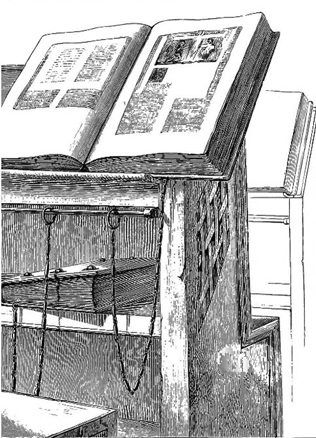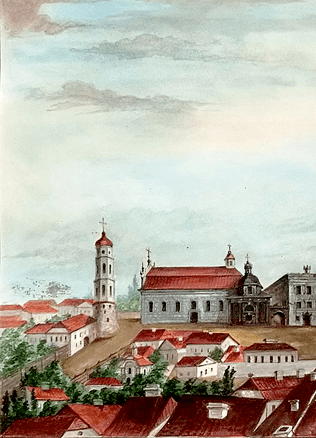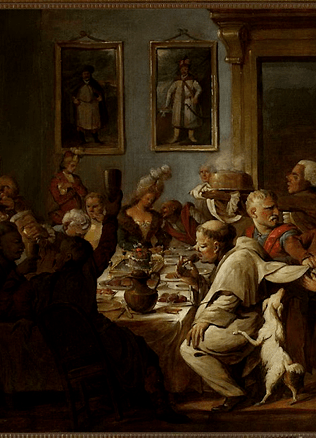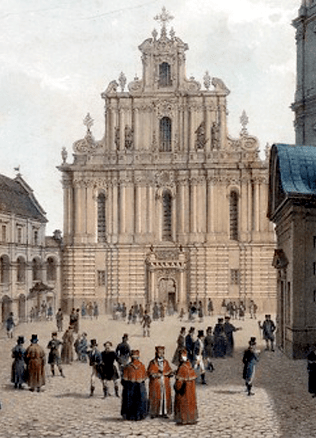A Samogitian “Tourist” in Europe: Teodor Stefan Billewicz and His Diary (1677-1678)
Trips by young Lithuanian nobles through Europe grew in number starting during the Renaissance, which they went to not only for studying, but also for travelling, becoming acquainted with other countries, people and traditions. One of these trips was recorded by Teodor Stefan Billewicz in his diary of 1677-1678, where the life of Europe of the time was told through the eyes of a Samogitian noble.
“A Master’s Degree in Travel” in the Radziwiłł’s Entourage
Teodor Stefan Billewicz (1655?-1724?) was born in Samogitia in the family of Stefan Aleksandr Billewicz and Urszula Kaminska. He had a brother named Zigmunt. Teodor Stefan Billewicz married Helena Gruzewska, with whom he had two sons, Aleksandr Jerzy and Jan Stefan. Though Teodor grew up in an Evangelical Reformed family, he was sent to study at the Jesuit Vilnius Academy. It was there he studied philosophy and was active in student life. In 1675 he printed his final thesis Triplex philosophia rationalis, naturalis et moralis (A Three-Part Rational, Natural and Moral Philosophy). After finishing his studies, he went on a journey through foreign lands, which was like a final stage in the education of young noble men. In this way he was prepared for a career as a high official, which he started after returning from his journey. Billewicz became the Pantler of Samogitia (1678), later the Bailiff of Didieji Dirvėnai, and in 1685-1694 held the post of the sub-elderman of Samogitia, and afterwards was chosen as the assisting judge to the Land Court of Samogitia, and in 1695 reached the pinnacle of his career and became the judge of Land Court of Samogitia. He held this post for almost 30 years. He lived during dramatic times in the country’s history: there were wars with Turkey and Sweden, camps of Lithuanian nobles fought amongst each other, and a plague epidemic ravaged the country. However, his political activities were not his passion in life.
Do You Know?
We find the following impressions from foreign countries in the travel diary of Lithuanian noble Teodor Stefan Billewicz he wrote in 1677-1678: “We had some issued with the English peasants, as there is not a more insolent populace in the world than the English.” He described the French women he met in Grenoble in the following manner: “The ladies in this city dress beautifully and luxuriously, which is why they are captivating and very pale, as they live in the shade of white mountains, where the sun appears only rarely. Their skin is soft and white, they speak in a pleasant manner, they are not wild, like all Italian ladies, who are even afraid of their own shadow…”
A few years after his studies, he prepared himself for a trip through foreign countries, where he had to learn languages, good manners, become acquainted with the customs of the courts of other rulers, city fortifications, and acquire useful acquaintances.
The young Samogitian left for his trip on July 30th, 1677 from Seredžius. Soon after he joined the entourage of GDL Deputy Chancellor Michał Kazimierz Radziwiłł and his wife Katarzyna Sobieska (the sister of King Jan III Sobieski) in Biała and travelled to Italy. It is thought that Billewicz was to serve as the chronicler of the Radziwiłł’s trip, who recorded where the Radziwiłł couple was and what they did. During the journey in 1677-1678, Billewicz travelled with them to Poland, Bohemia, the Germans states, Italy, France, England, and the Netherlands and wrote down his experiences in his Diary of the Travels through the German, Czech and Italian Lands.
Billewicz’s system of conveying his experiences was simple: he marked each day precisely, writing down his impressions and observations. For example, in September 1678 while in London, he briefly wrote that: “On the 17th day, time passed by while taking a look at the arrangement of the city, the luxuriousness of the houses, as well as a number of various items.” The other days spent on the trip were described in greater detail, sometimes even noting down the hour things occurred.
Criticism of Italian ladies and English peasants
During the journey the Radziwiłł and Billewicz visited palaces of rulers and saw the carnival and operas of Venice. In Venice, he separated from the Radziwiłł and continued the trip on his own. After arriving in Paris, he even rented a flat for one year, and prepared himself for studying French, and playing the lute, but knowledge of his father’s death forced him to change his plans. In his diary, he focused much attention on describing churches, holy relics, and miracles. For example on October 15th, 1677 when he visited the nuns in Prague on the feast of St. Theresa, he wrote: “The nuns showed one strongly god-fearing sister that had died thirty years prior, who has not yet decayed and sits like she is alive…” Though his writing style is restrained, he is blunt when describing the English peasants: “We had some issued with the English peasants, as there is not a more insolent populace in the world than the English.”
Upon arriving to a new place or city, he never forgot to describe the local women.
For example, he described the French women he met in Grenoble in the following manner: “The ladies in this city dress beautifully and luxuriously, which is why they are captivating and very pale, as they live in the shade of white mountains, where the sun appears only rarely. Their skin is soft and white, they speak in a pleasant manner, they are not wild, like all Italian ladies, who are even afraid of their own shadow…” Billewicz noted the language changes with precision. He depicted the language situation in Savoie in the following way: “As this is the border, almost everyone speaks both French and Italian. However, the stress of those speaking both one and the other language is very bad, both languages are mixed.” In this way in simple words he depicted the specific traits of Arpitan, a Gallo-Romance language used in the Savoie region.
In writing about foreign countries and customs of people there, Billewicz compared them with his country. Stopping in an Italian village, he observed that: “Here they don’t even observe Lent, and on Maundy Thursday (as I was forced to be here that day) I had to dine with butter.” And while observing the driving of Savoie princes with chariots he remarked “the places up front are considered more respectable, near the horses, and not in the back like for us.” He revealed an interesting detail about Lithuania’s Jews, when he saw something on market day while visiting London: “That cat wore a boy’s clothing. He showed all kinds of tricks on a rope, like the Jews at home, who do various tricks with a rope…”
In the diary, Billewicz described sailing in the sea to England and the Netherlands (the second Lithuanian to do so, with the first being Mikołaj Krzysztof Radziwiłł the Orphan). He noted: “At nine o’clock at night we were still sitting in the ship, trying to get to the Netherlands by sea, experiencing great discomfort concerning our health.” One can understand that what lay between the lines of Billewicz writing (the word “discomfort”) was that sea sickness was plaguing him. Billewicz’ diary, as a travel guide through Europe from the second half of the 17th century written by a Samogitian noble, conveys special aspects of life from that time, and opens up the consciousness, bends and turns of thought of a person from that time, as well as fragments of everyday life in Lithuania.
Literature: T. Billewicz, Kelionės vokiečių, čekų ir italų žeme dienoraštis, Vilnius, 2003.
Jonas Drungilas



